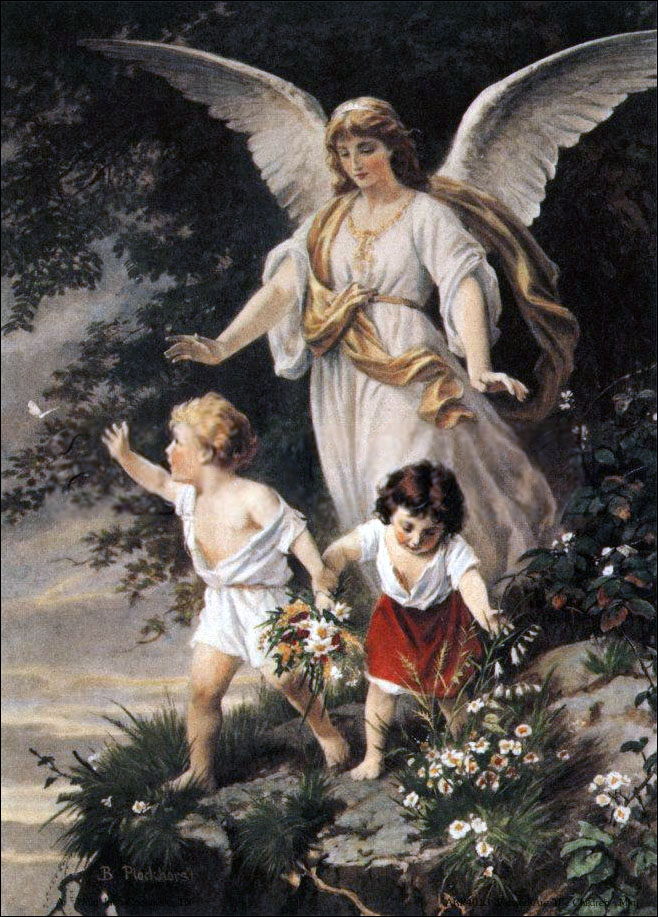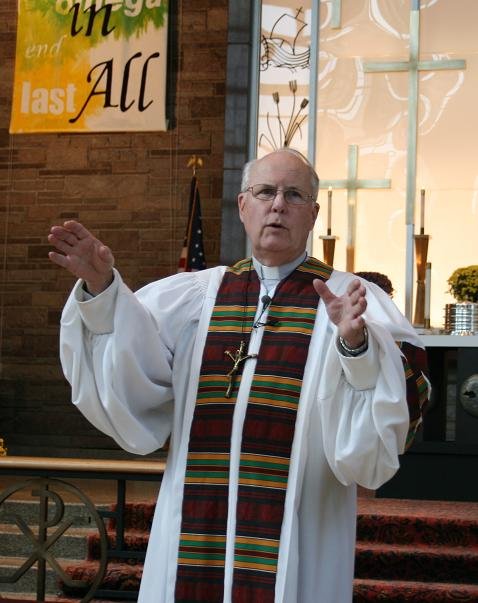Listen to Sermon
Pastor Tom Johnson, December 29, 2019
_-_James_Tissot_-_overall.jpg) |
| “The Return from Egypt” by James Tissot (1836-1902) |
Joseph has four dreams. In each of them, God speaks to him. The dreams make a good four-part outline. In the first dream, God tells Joseph not to fear taking Mary as his wife and child as his own. He marries Mary and adopts Jesus. In the second dream, God tells Joseph to take his family to Egypt to escape Herod’s violence in Israel and find refuge in Egypt. In the third dream, God tells Joseph to go back to Israel since Herod is dead and no longer a threat. In the fourth dream, God tells Joseph to go to Nazareth because it is a safe city in Israel. Joseph’s dreams remind us that God knows the thoughts and intention of every human heart—even those bent on cruelty and evil. God warns Joseph to stay one step ahead of the threats. As Joseph walks with the Lord, God uses him to preserve the lives of Mary and the Child, Jesus.
Biblical scholars suggest that the gifts from the Magi—the gold, frankincense, and myrrh—helped Joseph take his family to Egypt. They may have had to pay for safe passage into Egypt or bribes when they arrived. Regardless, they had what they needed to sustain them until Herod’s murderous madness was over. It is unbearable to even think about how horrific and wicked Herod was to kill all the children in and around Bethlehem who were two years-old or under. Yet, there it is right there in the Bible. And it is real. You can still see the bones of the slaughter of the innocents in a cave in Israel today.
According to World Vision, there are over 70 million refugees in the world today—being forcibly displaced from their homelands. Half of them are children. The top five countries are Syria, Afghanistan, South Sudan, Myanmar, and Somalia. Many Christians are targeted for violence throughout the world. And even at our borders in the United States there are many seeking asylum and safety from their homelands which are too dangerous to return to. Some are leaving their country of origin because of war, gang violence, religious persecution, or human trafficking. It is an alarming fact that Jesus and his family’s flight into Egypt to escape the threat of death is not as uncommon of a human experience as we would like to think. It is easy for us, perhaps, to live, work, and go home in the security of our borders and not realize the plight of humanity all around us and all around the world.
God cares about the most vulnerable among us. Even before God’s love for the world was fully revealed in Jesus Christ—thousands of years before Jesus and his family fleeing their homeland threat—God said to his people, the Israelites, “You shall not wrong or oppress a resident foreigner, for you were foreigners in the land of Egypt. You shall not abuse any widow or orphan. If you do abuse them, when they cry out to me, I will surely hear their cry” (Exod 22:21-23). “You shall also love the foreigner, for you were foreigners in the land of Egypt” (Deut 10:19).
I’m grateful that the president of our denomination as well as the president of the Northern Illinois district have both put out strong statements regarding our Christian duty to show hospitality and love to those who who come to our borders and communities. We of all people should know that God calls us to treat others—and especially their children—as we would want ourselves and our own children to be treated. We are to love one another as Christ has loved us. Scripture says in the book of Hebrews, “Do not neglect to show hospitality to strangers, for thereby some have entertained angels unawares” (Heb 13:2). And that is quite something to ponder: Egyptians showed hospitality to the Word made flesh and entertained the Messiah in their borders unawares. This is simply a fulfillment of the Golden Rule and the Royal Law: “Love your neighbor as yourself.”
Joseph the stepfather of Jesus does not get a lot of attention. He not only is a fabulous and godly father—he embodies our Heavenly Father. Joseph adopts Jesus as his own Son. He preserves his life through his obedience, care, and love even though Jesus is not his flesh and blood. He leads Jesus away from the threat of death into the sanctuary town of Nazareth. Jesus found refuge in his Heavenly Father through his earthly stepfather Joseph.
Like Joseph, God our Heavenly Father adopts us as his own daughters and sons. He preserves us body and soul through the obedience of his Son. Jesus suffers as a refugee and, as an adult, suffers death for us even though we are not his own flesh and blood. Jesus is our divine Coyote—our soul smuggler—who takes us safely to the other side. He purchases a place for us in heaven—not with gold and silver or with frankincense or myrrh but with his precious blood on the Cross of Calvary. He leads us from the threat of sin, death, and evil by the power of his resurrection. And he welcomes us into the sanctuary city of the New Jerusalem. We are no longer refugees, foreigners, and aliens. We are citizens of the Kingdom of God. He welcomes us, takes us as his own, and brings us safely to our heavenly home. Jesus the refugee is now Jesus our refuge.



















